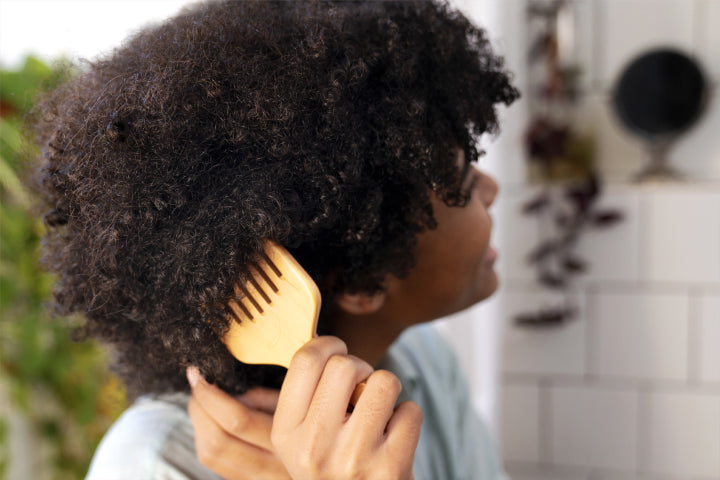- Hormonal Changes: Fluctuations in hormone levels, such as those experienced during pregnancy, postpartum, or due to conditions like polycystic ovary syndrome (PCOS), can lead to hair thinning or loss.
- Nutritional Deficiencies: Inadequate intake of essential nutrients, particularly iron, zinc, and certain vitamins (like B-complex vitamins), can lead to hair thinning.
- Dieting or Eating Disorders: Extreme diets, rapid weight loss, or eating disorders can disrupt the normal hair growth cycle due to nutrient deficiencies.
- Genetics: Androgenetic alopecia, or female pattern hair loss, is a genetic condition that can lead to gradual thinning of the hair.
- Medical Conditions: Certain medical conditions like thyroid disorders, autoimmune diseases, and hormonal imbalances can contribute to hair loss.
- Hairstyles and Treatments: Excessive styling, tight hairstyles (like braids or ponytails), and harsh chemical treatments can lead to a type of hair loss called traction alopecia.
- Birth Control and Medications: Some birth control methods and medications can affect hormone levels and contribute to hair loss as a side effect.
- Poor Scalp Health: Conditions like dandruff, psoriasis, or seborrheic dermatitis can affect the health of the scalp and hair follicles.
- Environmental Factors: Exposure to environmental pollutants, harsh chemicals, and UV radiation can damage hair and contribute to thinning.
- Medical Treatments: Certain medical treatments like chemotherapy can lead to temporary or permanent hair loss.
- Age: As women age, there can be a natural thinning of the hair due to changes in hormone levels.
It's important to note that if someone is experiencing significant hair loss, it's advisable to consult a healthcare professional or dermatologist. They can perform a thorough evaluation, identify the underlying cause, and recommend appropriate treatments or lifestyle adjustments. Early intervention can often lead to better outcomes in managing hair loss.





